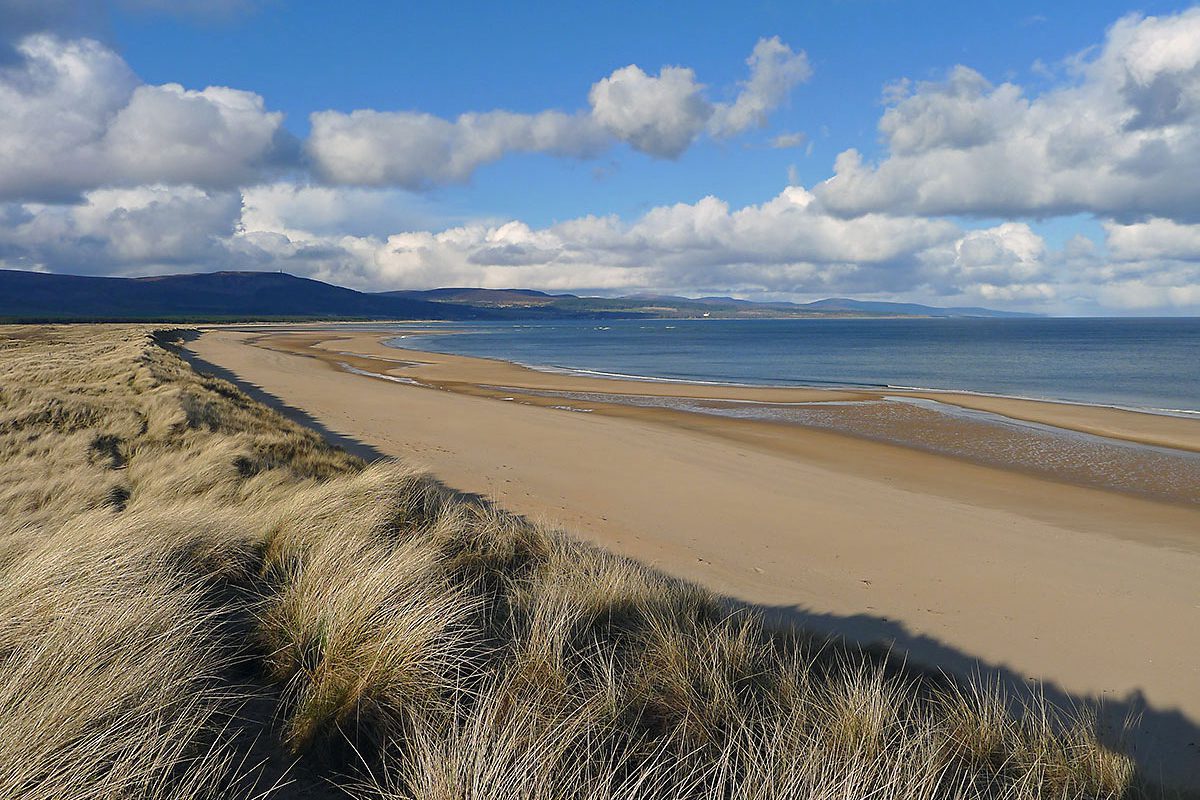
A leading environmental scientist has hailed the ‘landmark decision’ to refuse planning permission for the Coul Links golf course – labelling it a victory for ‘common sense’.
On 21 February Scottish Ministers opted not to grant permission for the controversial plan to build an 18-hole golf course on the dune system at Coul Links, Embo, near Dornoch.
The scheme was first unveiled in December 2015 by the Highland Council, before a public inquiry into the development was launched in February 2019.
Rev. Paul Rooney, Head of Geography and Environmental Science at Liverpool Hope University, led expert evidence on behalf of Scottish Natural Heritage (SNH) at the planning inquiry.
And speaking after the verdict was handed down, he says the negative impacts of the proposal far outweighed the benefits.
He said: “The decision by Scottish Ministers is a landmark decision that recognises the importance of the natural environment in national planning policy.
“While the development would have resulted in limited social and economic benefits, the significant adverse environmental impacts far outweighed these benefits.
“It is a decision for common sense and one that recognises the importance of conserving our natural environment for both people and nature.”
Rev. Rooney is an international authority on the ecology and management of coastal dunes and also directs the UK Sand Dune Network based at Liverpool Hope University.
And while he’s praised the Coul Links decision, he says not all golf developments are detrimental to the environment.
On the contrary, he argues, the golf community can be important custodians of coastal dunes which ‘provide some of the finest places for the sport.’
Rev. Rooney, who’s currently working on several research projects for the Royal and Ancient, the ruling authority for golf throughout the world, adds: “In many places golf has provided a ‘full stop’ to ruinous development in the coastal dune environment.
“There are many dune links courses in the British Isles and they play an important role in the conservation of open dynamic landscapes that are cherished by people and are important for wildlife.
“Golf can be a responsible steward of these important resources.
“The proposal to develop a course at Coul Links did not contribute to golf’s sustainability and environmental credentials.
“Its refusal demonstrates a good decision for golf”.
SNH are the public body responsible for Scotland’s natural heritage that advises the Scottish Government and acts as a government agent in the delivery of conservation designations.
https://www.hope.ac.uk/






